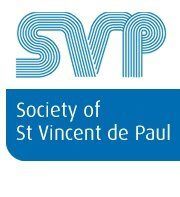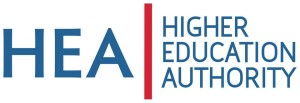
By Ann Marie Foley - 22 December, 2015

The National Action Plan for Equity of Access to Higher Education 2015 – 2019 and associated funding has been welcomed by the Society of St Vincent de Paul (SVP) but the charity also criticised it for a “lack of ambition”.
“We support the direct targeting of communities and parents as we know this is an effective route to engage families. We also welcome the increase in the Student Assistance Fund of €1.5 million but know that much more needs to be done to improve how this fund is both administered and the level to which it is funded,” said Audry Deane, SVP Social Justice and Policy Officer.
She welcomed as a “start” the €400,000 allocated to encourage more students from disadvantaged backgrounds to become teachers.
She added that the SVP is sceptical at the lack of ambition in some of the targets set, and in particular the modest €3 million extra for 2016.
Much more needs to be done to for equal access and to counter decades of neglect.
“The SVP sees at first hand the barriers to low income families considering third level for their children; lack of money, inadequate access to career guidance at second level and few role models from disadvantaged communities and underrepresented communities,” said Audry Deane.
“Education is the ultimate enabler out of poverty. That’s why the SVP worked closely with the Higher Education Authority as it prepared its National Action Plan for Equity of Access.”
“Our views have been reflected to some degree; mentoring programmes, better partnering with local institutions to showcase positive role models, better and earlier supports for disadvantaged students when they enter college and improved pathways from second level schools to third level, in particular to teacher training courses,” Audry Deane added.
The SVP hopes that effective collaboration between institutes of education and communities with low participation rates as well as tighter accountability in how colleges deliver on their access objectives will result in more disadvantaged students progressing to third level.
“Ireland must act to stop the systemic exclusion of students on income grounds. It is a moral imperative, not a choice for a republic which values all its citizens equally,” concludes Audry Deane.

In its Submission to the Higher Education Authority of Ireland, the SVP stated that while Ireland now has the fourth highest level of young people between 25 and 34 years educated to third level, progression for those from the lowest socio economic groups has remained low at 47%.
The SVP stated that a higher education qualification has now become the norm to get a job but third level education is not a reality for many.
The charity supports students from a wide cross section: school leavers who are mostly children of lone parents, mature students who themselves are lone parents taking a second chance at education and more recently those who have lost jobs and are retraining to improve their career prospects.
The SVP spends up to €5m on education each year. For the last academic year only one of the supported students dropped out while a second was required to re-sit two subjects. All of the remainder of students were successful.
The SVP East region (Dublin, Kildare and Wicklow) spent €89,210 and €135,000 respectively in the last two academic years with 7/8th of this sum going to help disadvantaged students gain access third level education.
In the Clare area, 46 applications were made during the months of July, August and September 2014 with 39 accepted for financial support.
The amount spent was €38,000 with a 60:40 ratio of mature students, some migrants, to school leavers.
Top-up financial aid is given for living expenses such as fees, rent, equipment and text-books. Other SVP regions have also contributed to education.
An SVP education group has on-going contact with colleges to reduce costs and with the SUSI office (which awards student grants). Delays and difficulties engaging with SUSI was a problem for SVP members working with disadvantaged families.
The SVP found itself in effect ‘subbing’ many students who would not have been able to begin their third level education as they did not have sufficient funds.
Another issue which pushes many disadvantaged students into crisis is the sharp rise in rental accommodation costs.
In the Mid West region, the SVP runs very successful revision classes where second level exam students (both Junior and Leaving Certificate) are taught by volunteer teachers in the evenings. Students got positive results, improved their academic choices and self esteem.
The SVP submission also focused on what it called “up-front” and year-long costs of second level education which families cannot afford.
As well as costs of uniforms, books, and sports equipment, Transition Year costs, are a major financial problem for disadvantaged families. The cut back in available Career Guidance teachers has also had a negative impact on students.

Minister for Education and Skills Jan O’Sullivan, at launch of National Plan of Equity of Access to higher Education 2015- 2019
Some targets in National Action Plan for Equity of Access to Higher Education 2015 – 2019 are:
• Increasing the number of Irish Travellers entering higher education (from 35 to 80 entrants per year)
• 1,500 additional new entrants (young adults) from disadvantaged backgrounds
• 2,000 more FETAC graduates entering the sector basis of their FE qualification
• New higher education-community partnership initiatives in areas of low participation
For full submission see: https://www.svp.ie